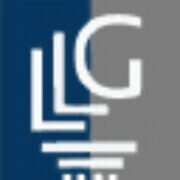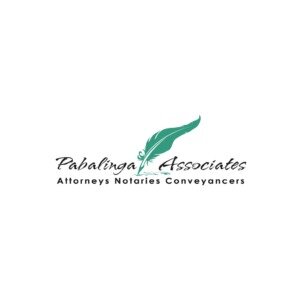Best Restructuring & Insolvency Lawyers in Botswana
Share your needs with us, get contacted by law firms.
Free. Takes 2 min.
Or refine your search by selecting a city:
List of the best lawyers in Botswana
About Restructuring & Insolvency Law in Botswana
Restructuring and insolvency law in Botswana deals with the processes and legal frameworks that respond to financial distress in businesses and individuals. These laws are designed to manage situations where entities are unable to pay their debts in a sustainable manner. The primary focus is on helping struggling entities either recover through restructuring or, if recovery is not possible, systematically manage their insolvency through liquidation so that creditors and stakeholders are treated fairly. The legal landscape in Botswana is governed by statutes like the Insolvency Act, Companies Act, and related regulations, providing a structured manner for handling financial failure and corporate recovery.
Why You May Need a Lawyer
Navigating restructuring and insolvency scenarios in Botswana can be complex and emotionally taxing. Engaging a lawyer is crucial in a variety of situations, such as:
- If your business is facing serious cash flow challenges and cannot meet its debt obligations
- If you are an individual being pursued for unpaid debts and are concerned about bankruptcy
- If you are a creditor seeking to recover what you are owed from an insolvent customer or entity
- If you are a director or shareholder wanting to know your risks and responsibilities in insolvency
- If you need to understand the best options available, such as voluntary liquidation, business rescue, or debt restructuring
- If you have received a statutory demand or winding-up notice
- If you want to restructure the affairs of your company to avoid insolvency in the future
A lawyer provides crucial advice, ensures compliance with local regulations, represents your interests in court, and helps negotiate with creditors or regulators.
Local Laws Overview
Botswana's restructuring and insolvency laws are rooted in key legislation including the Insolvency Act, Companies Act, and various regulations. Here are a few important aspects:
- Insolvency Act: Covers procedures for sequestration, liquidation, and administration of insolvent estates for both individuals and companies.
- Companies Act: Provides for voluntary and compulsory winding-up procedures, directors' duties during insolvency, and creditor rights.
- Business Rescue: Botswana has provisions that allow entities to attempt business rescue or restructuring arrangements with creditors in order to avoid full liquidation.
- Secured vs Unsecured Creditors: The law distinguishes between these categories, impacting the priority of payments during liquidation or restructuring.
- Role of Court and Insolvency Practitioners: Most insolvency proceedings require court oversight and the appointment of trustees or liquidators to manage the process.
- Personal Insolvency: Individuals facing insolvency can apply for voluntary sequestration, while creditors can also seek to have a debtor declared insolvent under certain circumstances.
It is important to note that failing to comply with statutory procedures can result in penalties, disqualification from management roles, or personal liability for company directors.
Frequently Asked Questions
What is the difference between restructuring and insolvency?
Restructuring involves reorganizing a company's debts and assets to improve financial stability and potentially avoid insolvency. Insolvency refers to the legal status where an individual or company cannot meet its debt obligations as they fall due.
How do I know if my business is insolvent?
Your business may be insolvent if it cannot pay its debts when due or if its liabilities exceed its assets. A lawyer can assist in reviewing your financial situation and advise on the next steps.
What are the common restructuring options available in Botswana?
Common options include informal arrangements with creditors, formal compromise agreements, or court-supervised business rescue proceedings aimed at rehabilitating the company’s financial position.
What happens during company liquidation?
In liquidation, a company’s assets are sold off to pay creditors. The process is managed by a liquidator, and the company typically ceases operations once liquidation is complete.
Can I continue to run my business during insolvency proceedings?
Depending on the type of proceedings, some business operations may continue, particularly during business rescue. However, in most liquidations the appointment of a liquidator means direct control by directors or owners ceases.
What is the role of the court in insolvency proceedings?
The court oversees major steps in insolvency such as the approval of sequestration, appointment of liquidators or trustees, and the approval of creditor arrangements or compromises.
Are directors personally liable for the company’s debts?
Generally, directors are insulated from company debts. However, in cases of misconduct, fraud, or trading while insolvent, directors can be held personally liable.
What is the difference between voluntary and compulsory liquidation?
Voluntary liquidation is initiated by the company itself, usually when directors or shareholders agree that it cannot continue. Compulsory liquidation is initiated by creditors through a court process.
How are creditors paid during liquidation?
Creditors are paid in order of priority established by law, with secured creditors generally paid before unsecured creditors. Remaining funds, if any, are distributed among shareholders.
Can individuals declare bankruptcy in Botswana?
Yes, individuals can initiate voluntary sequestration if they are unable to pay their debts, and creditors can apply to have a debtor declared bankrupt through the court.
Additional Resources
For further guidance or support, you may consider reaching out to the following:
- Botswana Registrar of Companies and Intellectual Property (ROCIP) - For official records and information regarding company status and insolvency filings
- Botswana Unified Revenue Service (BURS) - For tax-related implications of insolvency and restructuring
- Botswana Law Society - For finding a licenced restructuring and insolvency lawyer
- Botswana Courts (especially the High Court of Botswana) - For court procedures and filings
- Ministry of Investment, Trade and Industry - For resources and guidance on business continuity support
Next Steps
If you believe you may be facing restructuring or insolvency issues in Botswana, consider the following steps:
- Gather all relevant financial and legal documents, such as company accounts, loan agreements, and correspondence with creditors
- Seek advice early from a qualified lawyer with experience in insolvency and restructuring to understand your position and obligations
- Assess all available options, including negotiation, restructuring, or formal insolvency proceedings, based on legal advice
- Comply with statutory obligations to minimize potential penalties or liabilities for officers and directors
- Stay informed about deadlines and court dates if proceedings have commenced
- Consider the impact on employees and other stakeholders, and seek advice on managing communications and legal requirements
Early intervention is critical. Engaging with a legal professional as soon as financial distress arises increases the likelihood of a favorable resolution and the possibility of business recovery.
Lawzana helps you find the best lawyers and law firms in Botswana through a curated and pre-screened list of qualified legal professionals. Our platform offers rankings and detailed profiles of attorneys and law firms, allowing you to compare based on practice areas, including Restructuring & Insolvency, experience, and client feedback.
Each profile includes a description of the firm's areas of practice, client reviews, team members and partners, year of establishment, spoken languages, office locations, contact information, social media presence, and any published articles or resources. Most firms on our platform speak English and are experienced in both local and international legal matters.
Get a quote from top-rated law firms in Botswana — quickly, securely, and without unnecessary hassle.
Disclaimer:
The information provided on this page is for general informational purposes only and does not constitute legal advice. While we strive to ensure the accuracy and relevance of the content, legal information may change over time, and interpretations of the law can vary. You should always consult with a qualified legal professional for advice specific to your situation.
We disclaim all liability for actions taken or not taken based on the content of this page. If you believe any information is incorrect or outdated, please contact us, and we will review and update it where appropriate.
Browse restructuring & insolvency law firms by city in Botswana
Refine your search by selecting a city.
















